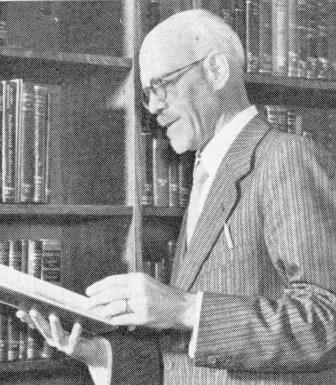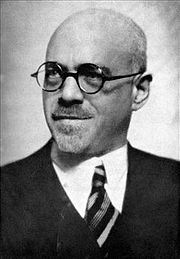

Enrico Bompiani
|
Visiting Professor (VP): 1947-1948 |
- Mathematics Genealogy Project Entry
- Excerpts about Enrico Bompiani From: A Place of Light, The Story of a University Presidency, Clarence R. Decker and Mary Bell Decker, 1954:
p. 190: If the V.P. [Visiting Professor] came for a semester or a year, he taught in the regular schedule, offering courses in the day and repeating them in the evening for townspeople and part-time students. If he came for a month, he gave an organized course of twenty lectures in the daytime on a subject mutually agreed upon. An examination closed the course and two credit hours were allowed. In the evening a telescoped version of the same course was given in eight sessions - no examination, but a paper was required from credit students. The lectures were carefully outlined and mimeographed in advance and, together with a bibliography and recommended readings, were given to the student at the time he enrolled. Ample time was reserved for discussion.
p. 205: At Dr. [Maria] Castellani's suggestion, Professor Enrico Bompiani joined us as V.P. in 1947, and Italy had her day on the campus. Director of the Mathematical Institute of the University of Rome, Dr. Bompiani was one of two Italians awarded the Medal of Freedom by the President of the United States for his contribution to the educational program for our armed services in Italy. Urbane, friendly, the celebrated mathematician typified the happy scholar, the "pure" scientist. Outlining his courses, he said: "I am not so much interested in the practical use of mathematics, nuclear physics, and such, as I am in their art values. Sciences should be studied and enjoyed like philosophy. It is the pure beauty of the sciences that interests me the most. Do you know what the American poet [Edna St. Vincent Millay] meant when she wrote, 'Euclid alone has looked on beauty bare'?" When someone reminded him sternly of his own contribution to the development of atomic research, he answered cheerfully, "All that's important for other people, other reasons, but beside the point for me. When I work on a problem in pure mathematics, I do not think of atomic weapons exploding over cities. I think only of the search for the answers. The use of the answer is something else... One always hopes the use will be for peace."